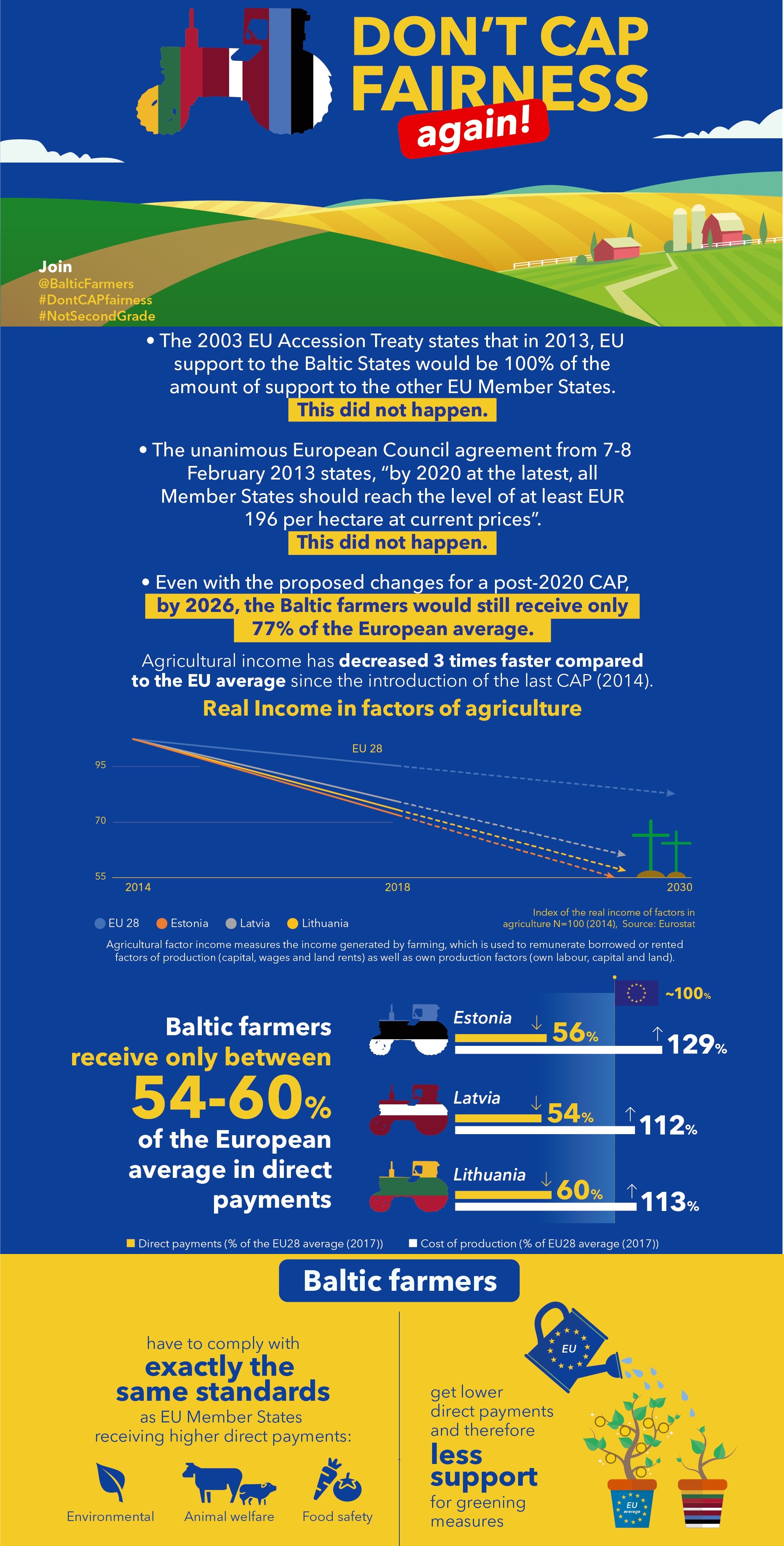Baltic farmers and state leaders united on the fairness of 100% in the European Union!
On February 20, in Brussels, the leaders of Latvia, Lithuania and Estonia will support a protest action organized by 200 Baltic farmers for fair direct payments and a just European Union Common Agricultural Policy (CAP).
Baltic farmers are organizing the action on February 20, ahead of an extraordinary European Council meeting, which is expected to agree on the EU's multiannual budget for the 2021-2027 programming period. The outcome of the European Council meeting will also determine the budget that will be allocated to the Common Agricultural Policy after 2020. In the last round of negotiations in December, the leaders of the Baltic states unanimously insisted on "full equalization of direct payments between member states, already at the end of the next programming period", signing a joint declaration.
The problem of unequal direct payments dates back to the time when the Baltic States joined the European Union. Direct payments were calculated based on a time when all three Baltic States were at their lowest point in development, trying to move from the Soviet centralized farm model to a family farm structure. Seven years ago, in 2013, the European Council unanimously agreed that “by 2020 at the latest, all Member States should achieve a direct payment level of at least EUR 196/ha”. This agreement has not been respected. Moreover, Baltic farmers continue to systematically receive no more than 54-70% of the European average direct payment amount, with European leaders completely ignoring the Baltic States’ continued dissatisfaction with the current situation and requests to find solutions to this problem.
Although Baltic farmers receive the lowest support in the European Union, our farmers, contrary to popular belief, also have to accept higher production costs – in Estonia 129% above the EU average, in Lithuania 112%, in Latvia 113% above the EU average production costs.
Baltic farmers are genuinely concerned that the increasing pressure of environmental issues in future policies and the European “Green Deal” is not accompanied by adequate funding for the Common Agricultural Policy. Higher environmental and climate requirements are similarly costly in all EU Member States, and require equally large efforts from farmers to mitigate climate change, therefore support for greener agricultural practices needs to be the same in all Member States.
Rural Development Policy has also proven itself as a fundamentally important and effective tool for improving the rural infrastructure and living standards of the local population in the Baltic States. For these reasons, the European Commission's proposal to reduce funding for Rural Development by 151% is categorically unacceptable to Baltic farmers.
Baltic farmers have previously gathered in Brussels to express their dissatisfaction with the calculations for the distribution of CAP funding in a similar manner. The farmers insist in one voice – “We are ready to cross the whole of Europe, and stand united for 100% fairness among European farmers, which will help us together to ensure rural population, and feed the European population in a sustainable, climate and environmentally friendly way. This time the political decision must be one that corrects the mistakes made historically.”
During the protest, Baltic farmers will offer their leaders the Baltic "European Council Juice", a special apple juice energy drink to help leaders focus on quality decision-making. The juice will provide 100% of the energy they need, although it is produced with only 70% of honest support.
Latvian farmers will be represented at the protest by the association "Farmers' Parliament", "Cooperation Council of Agricultural Organizations", "Association of Latvian Agricultural Cooperatives", "Federation of Latvian Farmers" and "Association of Agricultural Statutory Companies".


